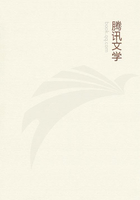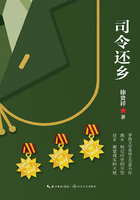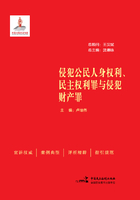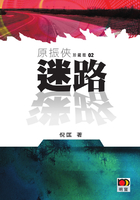1769-1783.
Authentic date of Bonaparte's birth--His family rained by the Jesuits-- His taste for military amusements--Sham siege at the College of Brienne--The porter's wife and Napoleon--My intimacy with Bonaparte at college--His love for the mathematics, and his dislike of Latin--He defends Paoli and blames his father--He is ridiculed by his comrades--Ignorance of the monks--Distribution of prizes at Brienne--Madame de Montesson and the Duke of Orleans--Report of M.
Keralio on Bonaparte--He leaves Brienne.
NAPOLEON BONAPARTE was born at Ajaccio, in Corsica, on the 15th of August 1769; the original orthography of his name was Buonaparte, but he suppressed the during his first campaign in Italy. His motives for so doing were merely to render the spelling conformable with the pronunciation, and to abridge his signature. He signed Buonaparte even after the famous 13th Vendemiaire.
It has been affirmed that he was born in 1768, and that he represented himself to be a year younger than he really was. This is untrue. He always told me the 9th of August was his birthday, and, as I was born on the 9th of July 1769, our proximity of age served to strengthen our union and friendship when we were both at the Military College of Brienne.
The false and absurd charge of Bonaparte having misrepresented his age, is decidedly refuted by a note in the register of M. Berton, sub- principal of the College of Brienne, in which it is stated that M. Napoleon de Buonaparte, ecuyer, born in the city of Ajaccio, in Corsica, on the 15th of August 1769, left the Royal Military College of Brienne on the 17th October 1784.
The stories about his low extraction are alike devoid of foundation. His family was poor, and he was educated at the public expense, an advantage of which many honourable families availed themselves. A memorial addressed by his father, Charles Buonaparte, to the Minister of War states that his fortune had been reduced by the failure of some enterprise in which he had engaged, and by the injustice of the Jesuits, by whom he had been deprived of an inheritance. The object of this memorial was to solicit a sub-lieutenant's commission for Napoleon, who was then fourteen years of age, and to get Lucien entered a pupil of the Military College. The Minister wrote on the back of the memorial, "Give the usual answer, if there be a vacancy;" and on the margin are these words--"This gentleman has been informed that his request is inadmissible as long as his second son remains at the school of Brienne. Two brothers cannot be placed at the same time in the military schools." When Napoleon was fifteen he was sent to Paris until he should attain the requisite age for entering the army. Lucien was not received into the College of Brienne, at least not until his brother had quitted the Military School of Paris.
Bonaparte was undoubtedly a man of good family. I have seen an authentic account of his genealogy, which he obtained from Tuscany. A great deal has been said about the civil dissensions which forced his family to quit Italy and take refuge in Corsica. On this subject I shall say nothing.
Many and various accounts have been given of Bonaparte's youth.
--[The following interesting trait of Napoleon's childhood is derived from the 'Memoirs of the Duchesse d'Arbranes':--"He was one day accused by one of his sisters of having eaten a basketful of grapes, figs, and citrons, which had come from the garden of his uncle the Canon. None but those who were acquainted with the Bonaparte family can form any idea of the enormity of this offence.
To eat fruit belonging to the uncle the Canon was infinitely more criminal than to eat grapes and figs which might be claimed by anybody else. An inquiry took place. Napoleon. denied the fact, and was whipped. He was told that if he would beg pardon he should be forgiven. He protested that he was innocent, but he was not believed. If I recollect rightly, his mother was at the time on a visit to M. de Marbeuf, or some other friend. The result of Napoleon's obstinacy was, that he was kept three whole days on bread and cheese, and that cheese was not 'broccio'. However, be would not cry: he was dull, but not sulky. At length, on the fourth day of his punishment a little friend of Marianne Bonaparte returned from the country, and on hearing of Napoleon's disgrace she confessed that she and Marianne had eaten the fruit. It was now Marianne's turn to be punished. When Napoleon was asked why he had not accused his sister, he replied that though he suspected that she was guilty, yet out of consideration to her little friend, who had no share in the falsehood, he had said nothing. He was then only seven years of age" (vol. i. p. 9, edit. 1883).]--He has been described in terms of enthusiastic praise and exaggerated condemnation. It is ever thus with individuals who by talent or favourable circumstances are raised above their fellow-creatures.
Bonaparte himself laughed at all the stories which were got up for the purpose of embellishing or blackening his character in early life.
An anonymous publication, entitled the 'History of Napoleon Bonaparte', from his Birth to his last abdication, contains perhaps the greatest collection of false and ridiculous details about his boyhood. Among other things, it is stated that he fortified a garden to protect himself from the attacks of his comrades, who, a few lines lower down, are described as treating him with esteem and respect. I remember the circumstances which, probably, gave rise to the fabrication inserted in the work just mentioned; they were as follows.

